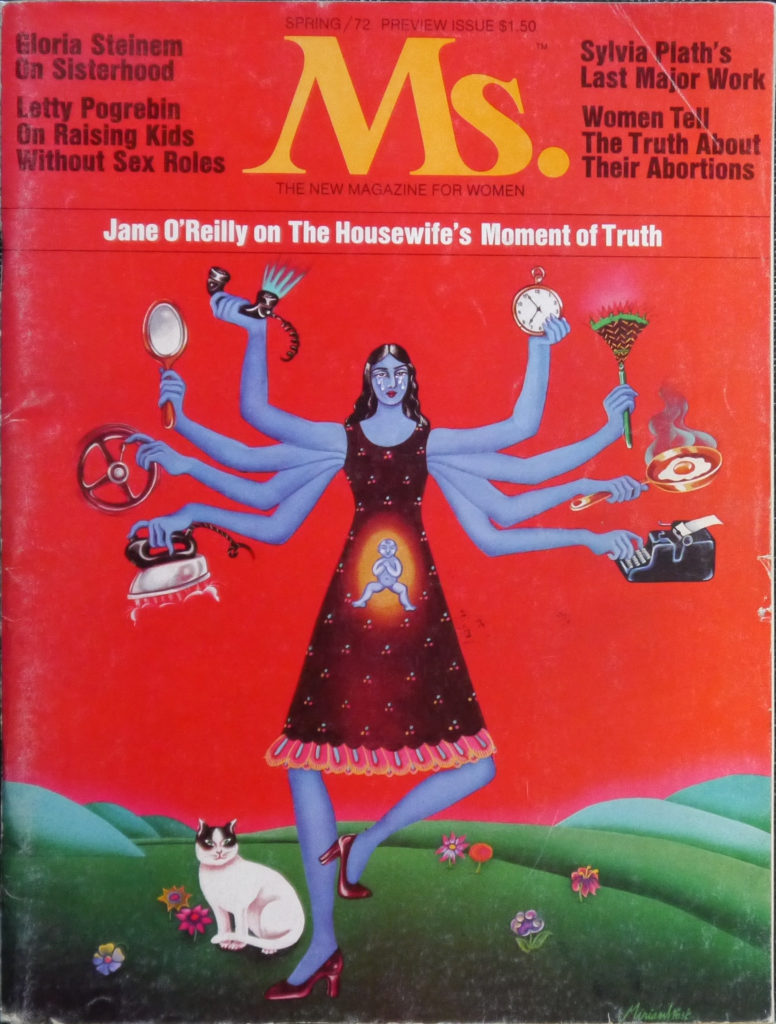Within Mrs. America’s Episode Two, Gloria Steinem’s party celebrates the debut of the first issue of Ms. magazine. Mrs. America captures the front cover perfectly. Hindu goddess Kali rallies the fight against the Christian principles America was founded upon.
In the episode, Steinem states, “Those are tears streaming down her face because she has to juggle all the demands of her work and marriage.”
As a goddess, Kali represents death, violence, mother nature, and sexuality. Traditionally, Kali dons “a skirt of severed human arms, a necklace of decapitated human heads, and earrings of dead children…a lolling tongue which drips blood.” One can see that the heads are always male.
Boldly enough, the Spring 1972 preview edition of Ms. portrays Kali as pregnant bearing household weapons instead of the traditional weapons in Hinduism. Despite this guise, feminists clearly are dabbling in paganism.
Jane O’ Reilly’s, “The Housewife’s Moment of Truth,” featured in the pages bound by this gruesome cover, describes enlightenment through a “Workshop in Approaching Unisexuality.” Men and women “began to evolve into the animal that most expressed our own ideas of ourselves–of our sensual selves.” She continues to describe her transformation into a black cat and another woman’s transformation into a snake apparently meaning that she “became a housewife.”
O’Reilly’s article and Letty Cottin Pogrebin’s, “Down With Sexist Upbringing” emphasize unisexuality, homosexuality, power, and influencing children to accept genderless roles. The intent to destroy traditional family values coincides with Kali’s bloodlust and violent nature.
Phyllis observed, “Women’s libbers are trying to make wives and mothers unhappy with their career, make them feel that they are ‘second-class citizens’ and ‘abject slaves.’” She was right! Throughout O’Reilly’s and Pogrebin’s articles, women are encouraged to enhance, “The liberated society–with men, women, and children living as whole human beings, not halves divided by sex roles.” Instead of sexual differences being embraced as unique, feminism promotes these differences as burdensome and problematic.
The feminists use Kali as a symbol of an enraged housewife fighting for her freedom. They claim that their cause liberates women, men, and children. Merging two distinct genders as one does not bring freedom, but chaos. As a goddess of “Mother Nature” and death, the feminists’ love of Kali reveals their intent to dismantle the traditional American family as we know it.

